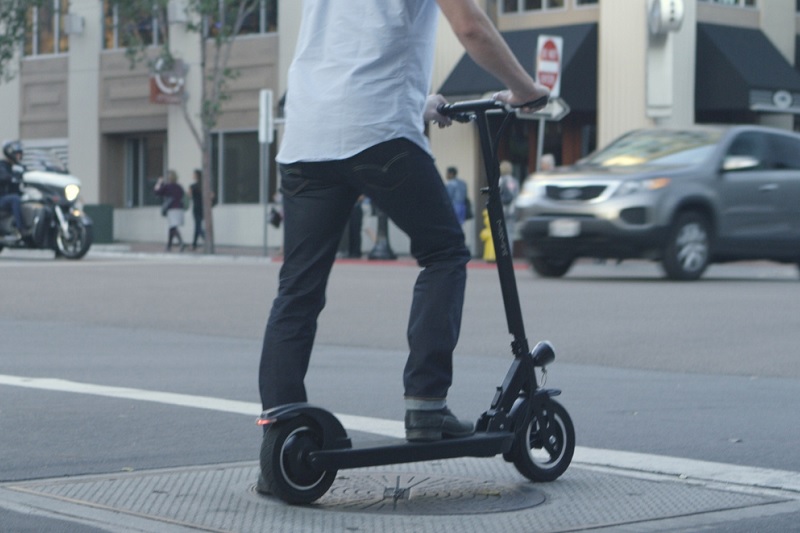
The Transport Committee has backed the legalisation of e-scooters for use on UK roads.
In a new report published today (2 Oct), the Committee says e-scooters have the potential to offer a ‘low cost, accessible and environmentally friendly alternative’ to the private car.
However, the Committee stresses any plans for legalisation should not be to the detriment of pedestrians, particularly disabled people.
The Committee calls for robust enforcement measures to eliminate pavement use of e-scooters, which the report says is dangerous and anti-social.
Currently, privately-owned e-scooters are banned to use in the UK anywhere except on private land.
Trials of rental e-scooters were legalised earlier this year, and have been launched in cities across the country, most recently in Norwich.
The Committee further caveats its report by calling for a sensible and proportionate regulatory framework for the legal use of e-scooters, based firmly on evidence gained from these trials and from other countries.
The Committee also says e-scooters should act as a replacement for short car journeys, rather than walking and cycling – adding it would be ‘counter-productive’ if an uptake in e-scooters primarily replaced more active and healthy forms of travel.
Huw Merriman MP, chair of the Transport Committee, said: “E-scooters have the potential to become an exciting and ingenious way to navigate our streets and get from place to place. If this gets people out of the car, reducing congestion and exercising in the open air, then even better.
“We support the Government’s desire to include e-scooters in the UK’s transport mix and the current rental trials will provide a crucial evidence base for future legislation.
“In order to learn how e-scooters impact on safety, the environment and people’s journey choices, the trials need to be accessible to a wide range of people and take place in a variety of different settings.
“We understand why driving licences were required for the trials, but it is a shame that key audiences were excluded at this stage.
“Most importantly, we heard first-hand about the impact of e-scooters on pavements. We need to ensure that their arrival on our streets doesn’t make life more difficult for pedestrians, and especially disabled people.
“Before proceeding with plans to legalise the use of e-scooters, local authorities and Government must use the trials to monitor this closely, put enforcement measures in place and ensure they are effective in eliminating this behaviour.”
These should have been legal years ago.
> If these are allowed to be used on the road then the rider would need insurance
Why? Wouldn’t home insurance – if the person has this, be enough? There’s very little difference – except unconscious biases – between a cycle and an electric scooter, even if both of them are used at speed.
David Weston, Newcastle upon Tyne
--3
Strange timing for this report, when the escooter trials don’t finish until the end of August 2021? Softening us up for an early finish to the trials and ‘quick and dirty’ legislation to make escooters legal?…….
Keith Wheeler, Aylesbury
+3
There is no evidence what so ever that scooters will replace many car journeys.
And bad news for pedestrians as can been seen here in central London, there will be many more scooters on the footway.
Richard Walker
RICHARD Thorp WALKER, London
+8
If these are allowed to be used on the road then the rider would need insurance. They have the potential to cause an accident just as any motorised form of transport. Also…the fact that the wheels are so small results in them being unstable at road going speeds! The fact that many current users of these are already reckless on the pavements I shudder to think how they would behave on a road!
Peter Scott, Manchester
+7
Funny how the road looks so smooth in the photo. Drivers are now going to have to look out for e-scooter riders who have fallen into pot holes, some never to be seen again.
Using these for short journeys is contrary to keeping fit. These will tax your ability to keep alive.
They are a stupid idea, which will cost the economy on raised insurance prices, claims, hospitalisation, demand for plastic , orthopedic surgery and rehab, car repairs, car washes (to remove the blood stains). Who are the winners? Lawyers and Insurance providers.
Paul, London
+13